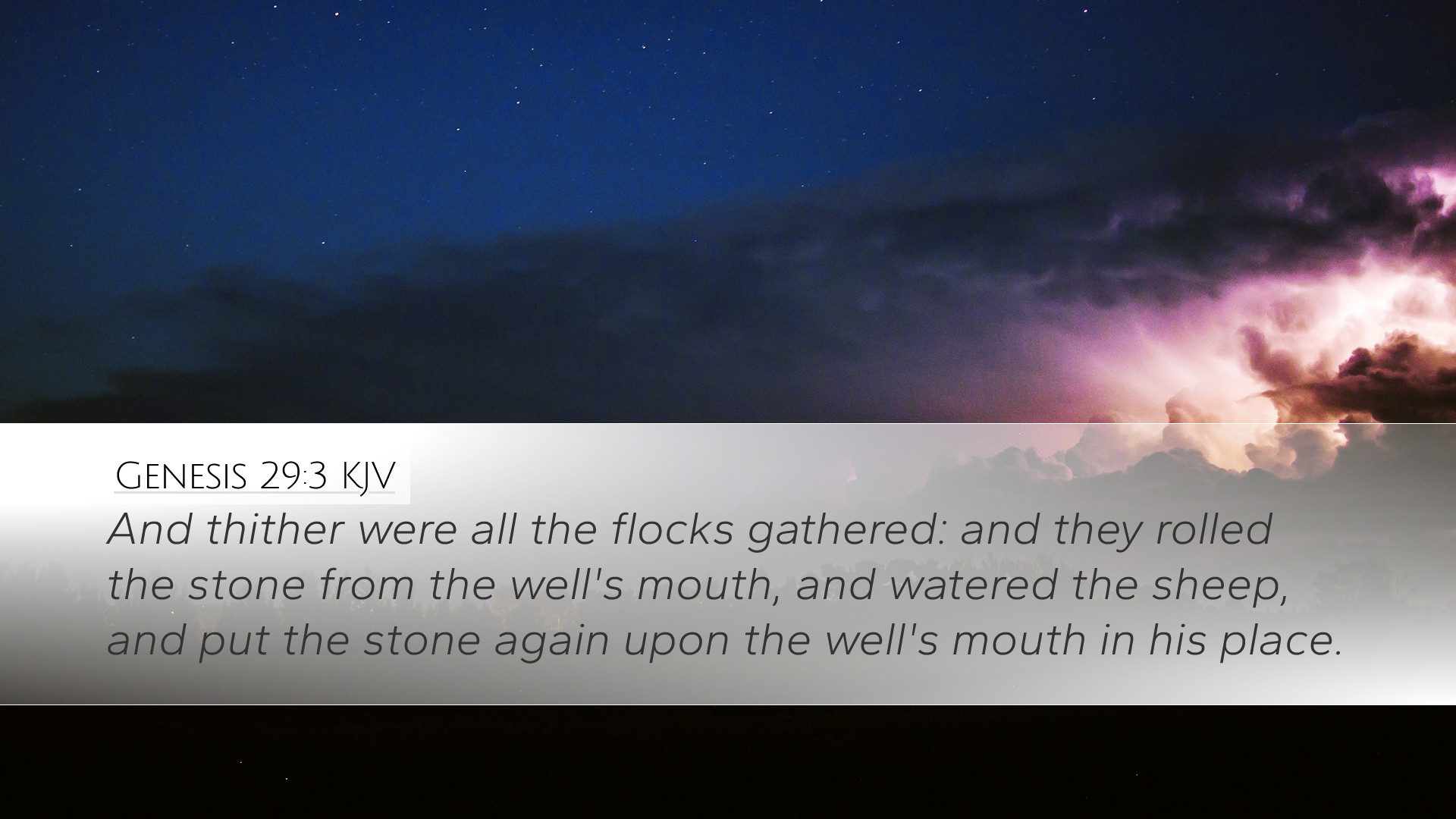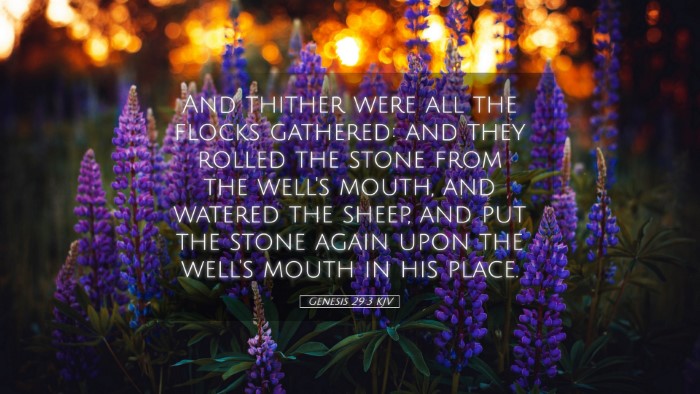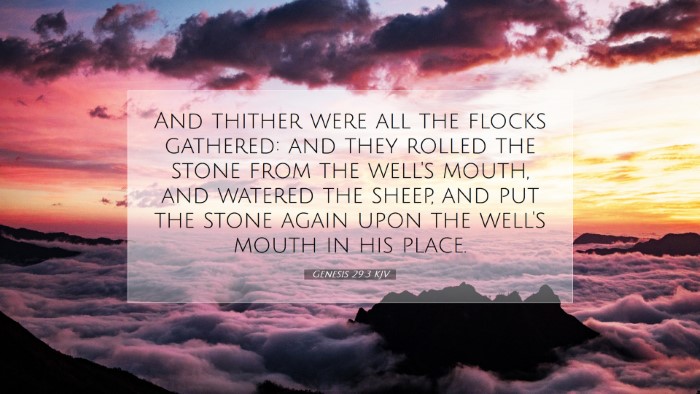Commentary on Genesis 29:3
Genesis 29:3 states: "And thither were all the flocks gathered: and they rolled the stone from the well's mouth, and watered the sheep, and put the stone again upon the well's mouth in his place."
Overview
This verse takes place during Jacob's journey as he seeks to find a wife from his mother's family, specifically in Haran. It provides a glimpse into the social customs and agricultural practices of the period, while also foreshadowing significant events in Jacob's life.
Insights from Matthew Henry
Matthew Henry emphasizes the communal aspect of watering flocks in this verse. He points out that the gathering of flocks indicates a shared responsibility among shepherds and highlights the importance of community. The act of rolling the stone away signifies teamwork and cooperation, illustrating the moral lesson that God's people should work together.
Henry also observes how physical labor and the management of resources signify a spiritual principle: just as the shepherds came together to help each other with the flocks, Christians are called to assist one another in their spiritual journeys.
He further notes that the well symbolizes a source of life, not only for the sheep but also spiritually for people. The act of watering is illustrative of both physical sustenance and the spiritual nourishment received through God’s Word.
Insights from Albert Barnes
Albert Barnes provides historical context to this passage, explaining that the phenomenon of rolling a stone from the well is characteristic of the Near Eastern customs of the time. He delineates the necessity for a group of shepherds to collaborate to access water, as the stone was heavy and typically required multiple men to move it.
Barnes makes particular note of the significance of this event in relation to Jacob’s destiny. He connects this scene to the larger narrative, implying that God orchestrated this encounter as a means to guide Jacob toward his future. Jacob’s arrival at the well could be seen as a divine intervention, aligning with the covenantal themes present throughout Genesis.
Insights from Adam Clarke
Adam Clarke focuses on the notion of pastoral care and the responsibilities that come with it. He emphasizes that the shepherds' actions of working together reflect a model of effective leadership. Clarke points out that the rolling away of the stone is a metaphor for breaking down barriers that can hinder the community’s ability to thrive.
Clarke deeply considers the symbolism of the well itself. He argues that water is essential for life, making the well a powerful emblem of spiritual refreshment. The well, therefore, represents Christ; just as earthly water nourishes the flock, Christ nourishes the believer.
He highlights how the cooperative action of rolling the stone away may parallel acts within the church, suggesting that believers are often called to aid each other in accessing the “Well of living water” that Christ offers.
Theological Themes
- Community and Cooperation:
The collaborative effort of gathering at the well raises important themes around community in Christian theology. Believers are encouraged to work together and support one another, just as the shepherds did.
- Divine Providence:
The events at the well are a reminder of God’s guiding hand in human affairs. This incident is part of God’s larger plan for Jacob, reinforcing the belief in divine providence.
- Spiritual Nourishment:
The well as a source of water aligns with the biblical theme of Jesus as the source of living water, offering spiritual sustenance and salvation.
Application for Pastors and Theologians
Pastors and theologians can derive substantial lessons from Genesis 29:3 when addressing contemporary issues within church leadership and community building. The diligence of the shepherds showcases the essence of unity and teamwork in serving one another, which can be applied to pastoral ministry today.
This passage challenges leaders to break down barriers that obstruct their congregation’s access to spiritual nourishment. Just as the shepherds unrolled the stone to draw water, church leaders must identify and remove obstacles that prevent their flock from experiencing God’s presence and provision.
Conclusion
Genesis 29:3 serves as a rich tapestry of themes woven through the actions of Jacob and the shepherds. By exploring this verse through the insights of esteemed commentators like Matthew Henry, Albert Barnes, and Adam Clarke, we uncover profound theological implications for community, divine guidance, and spiritual nourishment. Pastors, students, and scholars alike should reflect on these insights, allowing them to inform their understanding of scripture and practical ministry.


